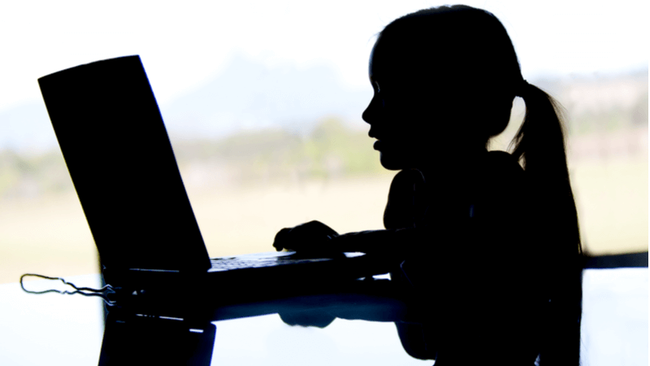
Parents should be a smart ‘guardian’ for their children on social media
Latest
 |
| Ms. Nguyen Thi Nga, Vice Director General of Department of Children's Affairs (MOLISA) said that parents should be a smart ‘guardian’ for their kids on social media. (Photo: WVR) |
Protecting children online is not a new issue. In this new day and age, how to educate children to behave intelligently on social networks to avoid the risk of falling into the ‘black hole’ of social media?
Educating children on how to behave smartly, using social networks in a safe manner is in fact providing children with knowledge and skills. Thereby allowing children to protect themselves and to interact in a healthy and creative way in the online environment.
In other words, it’s about creating a “digital vaccine” for children, so they can protect themselves against bad and harmful content on social networks, and have healthy, creative interactions online.
Speaking of educating children, first we need to talk about the role of families, schools and teachers. Parents and family members need to care, talk, motivate and encourage children to access websites with healthy content. Teach your children on how much time and how they should act online, warm them of the risks that they may encounter and how to handle it.
School needs to include these contents in class or in extracurricular activities to teach children about safe internet skills, situations and how to avoid them.
Another important group who has an indispensable role to help children are: journalists, reporters, mass media channels, state management agencies. They need to provide information, lessons and skills for parents and teachers to be aware of emerrging problems online, in order to gain more knowledge and skills to teach children.
In your opinion, the negative effects and influences from the “virtual world” are increasing and dangerous. So, in order to create a "shield", a "filter" for children's Internet environment, how much effort is needed from related parties?
First of all, it must be affirmed that child protection whether online or offline is an interdisciplinary issue, requiring the cooperation of many sectors and the whole society.
Article 54 of Vietnam’s Law on Children specifies the responsibility to protect children in the online environment. Relevant agencies and organizations are responsible for raising awareness, educating and protecting children when participating in the online environment in any form. Parents, teachers and caregivers of children are responsible for educating their children so that they know how to protect themselves online.
Agencies, organizations and individuals that manage and provide information and communication products and services and organize activities in the network environment must take measures to ensure safety and confidentiality of children’s privacy in accordance with the law.
Decision No. 830/QD-TTg dated June 1, 2021 of the Prime Minister also stated five main tasks and solutions, including: Building and completing the legal corridor. Education, communication raise awareness and equip skills. Deploy technical measures and solutions, apply technology. Improve organizational structure, improve law enforcement capacity. Strengthen international cooperation.
The Decision also assigned specific responsibilities to relevant ministries and sectors on what to do, and how businesses, media agencies, and people's committees should coordinate.
We hope that in the coming time, protecting children online will be paid more attention and promoted further.
In order for children not to become victims of risks in the online environment, how important is the work of prevention?
In order for children not to become victims online, prevention plays an important and prerequisite role.
Prevention here is to give children the habit and skills to use the internet safely. Help children know how to use their advantages and endless resources online, but also know how to avoid lurking risks and dangers.
What to do to protect children online? Many parents feel worried and insecure when their children spend more time on the Internet. Can you give them some advices?
In order to protect children online, parents need to play a crucial role. I have some suggestions for parents.
Firstly, discuss with your child to come up with rules about using the Internet and mobile phones.
Set up a timetable for your child on daily use of the Internet and in an appropriate manner. Encourage all family members to spend time together.
Place network access devices such as computers, laptops, tablets in the living room/family room to monitor their children’s usage.
Secondly, use technological solutions, like installing anti-virus, anti-malware and filtering softwares to filter bad, toxic and inappropriate content for children.
Monitor children’s internet history or the apps they use on shared devices to give appropriate reminders and instructions. However, these solutions must be based on consensus between parents and childrent to minimize conflict.
Third, and the most important solution of all, is to openly discuss and talk with your children to know what content they often access, to guide them on how to find and use appropriate information and images.
At the same time, teach your children how to make friends, communicate, and not accept any friend requests from people that they don’t know in real life.
Teach your children how to handle situations if they have problems or worries online. They need to talk to their parents, teachers right away or use the National Child Protection Call Center service 111 for advice and help.
 |
| In order for children not to become victims of risks in the online environment, prevention plays an important and prerequisite role. (Source: Tripwire) |
What recommendations can you give in order to protect children, and to guide them to healthy and creative interactions on the internet?
Strengthen the role of families, parents and schools in training, supervising and guiding children to use the internet safely. At the same time, help children know what utilities and apps they should or shouldn’t use online, as well as how to recognize harmful and inappropriate information and video clips, and how to control personal information. Parents are also "gatekeepers", taking measures to proactively protect children.
Promote the development of healthy applications and games, attracting the participation of children to learn useful knowledge and skills in the online environment.
Continue to improve the law on child protection and online child protection, regulations on responsibilities and powers of People's Committees at all levels, inter-sectoral coordination mechanism in prevention, information receipt, early intervention, emergency protection, rehabilitation and community reintegration for children who are abused on the internet.
Create a cooperating mechanism between enterprises and the State to encourage the development of applications, software or online platforms and games that are useful playgrounds for children. Encouraging children to have healthy and creative interactions on the internet, tools for automatic filtering, and detection of child abuse detection on the internet. Thereby, helping to quickly detect abusive behavior and enhance prevention.
What measures do ASEAN countries and beyond have to prevent risks, including bad and harmful information that children might be exposed to online?
In 2019, ASEAN countries unanimously adopted the Declaration on the Protection of Children from all Forms of Online Exploitation and Abuse in ASEAN.
The Declaration has outlined key measures such as: Promote, develop and implement national legal frameworks in each ASEAN Member State and work towards strengthening principles to protect children from all forms of online abuse and exploitation in ASEAN Member States.
Strengthen law enforcement, enhance judicial and legal expertise through regular, relevant and up-to-date training, and share good examples of child protection from all forms of online children abuse and exploitation.
Encourage the establishment of a dedicated national unit with a clear mandate to lead, support and coordinate the investigation.
Improve the effectiveness of gender-responsive and rights-based child protection and support services and social welfare programmes.
Strengthen data collection, monitoring, reporting and referrals mechanisms, through hotlines to report suspected illegal online materials, including child sexual abuse materials.
Promote a national education program and school curriculum to raise awareness of sexual exploitation and other forms of child exploitation to empower children, youth, and parents, guardians, carers, practice and community officials.
Mobilize and strengthen the participation of the private sector and other relevant parties for them to actively participate in monitoring prevention and response measures through the rule of law, social responsibility, and work together to develop effective measures to detect, remove and report illegal content related to child abuse and exploitation online.
Thank you so much!

















